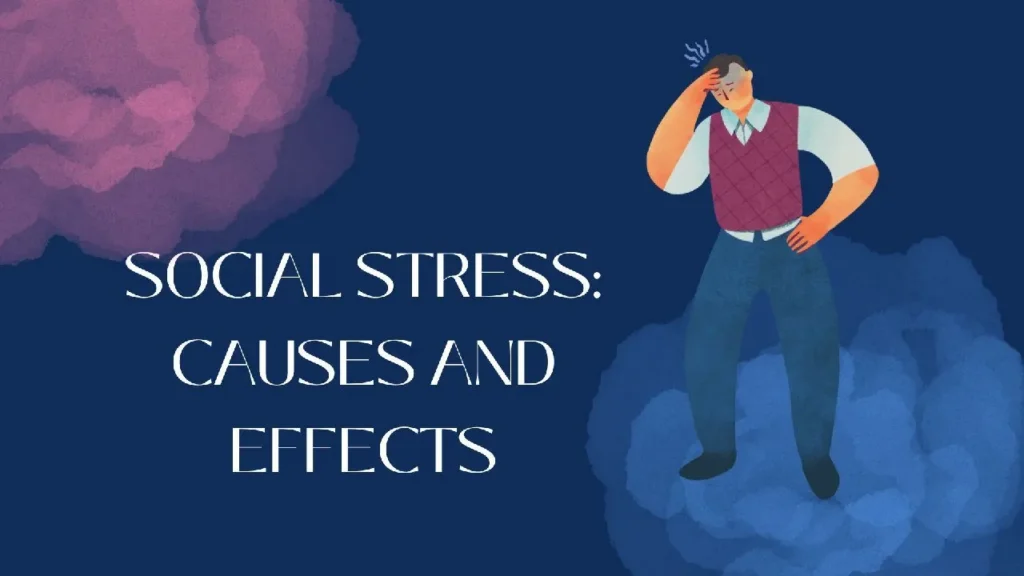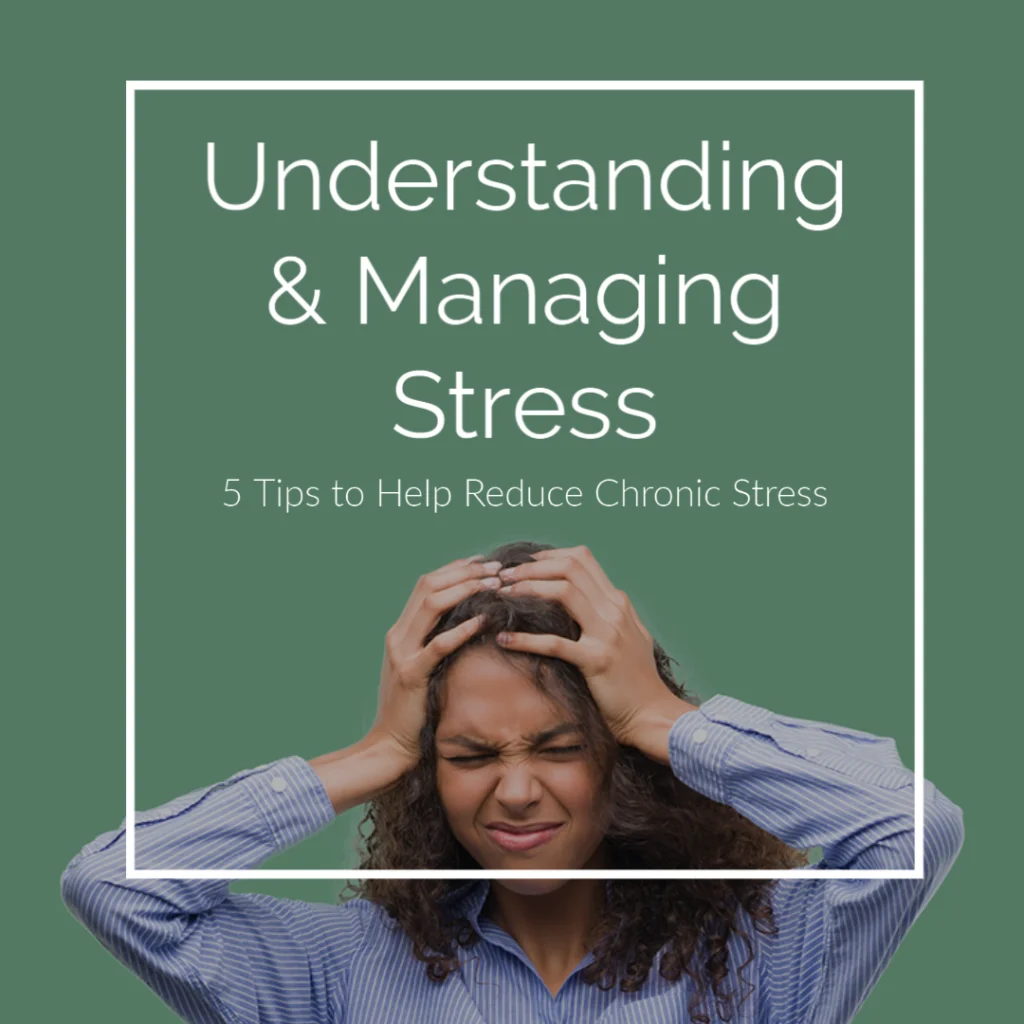Stress occurs when the body is forced to deviate from its normal state in response to an external demand. It can be caused by situations that leave you feeling disappointed, angry, or nervous. During stress, the body undergoes physical and mental reactions that enable you to handle and adapt to these challenges.
Nevertheless, prolonged tension may have detrimental impacts on your health.This article will help you to manage stress.
Types of Stress
Different types of stress include acute stress, episodic acute stress and chronic stress.
| Acute stress is a response for a short time to immediate threats or pressures, such as upcoming deadlines or sudden quarrels. |
| Episodic acute stress often happens when someone repeatedly faces situations causing acute strain because of their chaotic lifestyle or many responsibilities. |
| Chronic stress is the continuous experience of stressful conditions like difficult jobs, lasting illness and relationship problems. |
Symptoms And Causes of Stress
Symptoms Of Stress
| Physical Symptoms | Some physical signs of anxiety include headaches, tensioned muscles or pain, tiredness, and digestive problems. Other symptoms could include loss of appetite, frequent colds/infections, and high heart rate/palpitations. |
| Psychological Symptoms | These affect mental health status, resulting in worrying thoughts, restlessness, easily distracted/lacking motivation/irritability /depression. Also, it leads to over whelmed/loss of control feeling. |
| Behavioural Symptoms | Behavioral changes include excessive eating /eating too little, procrastination, neglecting duties/ increased alcohol/drugs/tobacco use. Symptoms also will involve anti-nail biting/pacing around anxiety and social withdrawal. |
| Emotional Symptoms | Mood swings happen because feelings react with agitation/frustration that comes without any sense of humour. A sense that life has become overwhelming and hopeless can be felt, leading to a drop in self-esteem. Revenue authorities, among others, have been unknowingly supporting corruption. |
| Cognitive Symptoms | These include memory problems, inability to concentrate and to make decisions, judgment impairment and a negative view towards life all of which have impacts on decision making as well as problem solving skills hence multiplying the rate at which people are stressed. |

Causes Of Stress
| Work-Related Pressures | Constant stress may emanate from heavy workloads, tight deadlines, long hours and conflicts in the workplace. There is also job insecurity or inadequate support from colleagues or supervisors that increases these stresses. |
| Financial Difficulties | The fear of not being able to pay bills, manage debts and save money for future life can become a significant cause of stress for individuals, while unexpected expenses may lead to chronic anxiety due to the fear of lacking enough money for basic needs. |
| Relationship Problems | Emotional difficulties could develop if there are quarrels between partners/ family members/ friends due to a lack of sharing differing expectations among others; caring for other people may also be mentally taxing, leading to constant worry about someone’s health. |
| Major Life Changes | These range from moving houses to changing careers to getting married or divorced to losing loved ones. All these need adjustments, thereby interfering with normal routines and consequently causing stress. As such changes in one’s life usually involve uncertainty and transition, such feelings largely bring about instability in life. |
| Health Issues | Stress is seen in situations like chronic diseases, accidents, and mental illnesses. One going through continuous pain and treatments coupled with effects accompanied by health conditions can easily drain both physically and emotionally, thus culminating in a persistent anxiety disorder. |
How is stress diagnosed?
Stress can be diagnosed through an extensive assessment done by a healthcare provider. This process involves several steps:
| Self-Reported Symptoms | Usually, the first step in diagnosing stress involves discussing your symptoms. You will be asked to describe what you are experiencing, including any physical, emotional, and behavioural changes that you might have noted. It is important to provide detailed information regarding the duration, intensity, and triggers of the symptoms. |
| Medical History | Your healthcare provider will go over your medical history to identify any illnesses that could be causing your stress. This may involve finding out about past sicknesses, chronic diseases, drugs taken and family health reports, among others. Knowing the background of general health helps in establishing cases related to stress. |
| Physical Examination | Sometimes, a physical examination may be needed to rule out other diseases that could cause similar symptoms to yours. For example, they may check blood pressure or ask for an ECG (electrocardiogram). In other cases, additional tests, such as laboratory blood work, may be necessary to differentiate between potential causes of these signs and symptoms. |
| Questionnaires and Scales | Standardized questionnaires and scales are commonly used by healthcare providers for assessing how much stress people experience in their life times. These instruments help measure the extent of stress exposure on a daily basis. Some common ones are the Perceived Stress Scale (PSS) and the Stress Assessment Questionnaire (SAQ). |
| Psychological Evaluation | In some situations, a psychological evaluation can establish mental aspects regarding stress; this means interviewing with a psychologist or psychiatrist who can determine whether anxiety or depression exists, among other conditions like these, only after performing some relevant psychological tests indicating your mental state. |
How to Manage Stress
Exercise Regularly
One of the best strategies for reducing stress is regular exercise, which activates naturally produced endorphins that stimulate good mood.
It also improves overall health, increases energy levels, and promotes better sleep, all of which combine to reduce stress.
Be Mindful and Meditate
Another powerful tool for stress management is mindfulness and meditation. Such methods include deep breathing exercises, progressive muscle relaxation, and mindfulness meditation, which can calm the mind and body.
These practices are centered on focusing your awareness in the present moments, decreasing anxiety levels, and improving how you cope with stressful situations. Regular practice of meditation fosters a long-lasting sense of peace while enhancing emotional health.
Live Healthy
Living a healthy life is important to help one manage stress effectively. A balanced diet comprising fruits, vegetables, whole grains, and lean proteins gives your body enough nutrients needed to support its response to stress.
Good sleep is also crucial since poor sleep escalates the level of stress, making it difficult to handle everyday challenges with ease. Further, controlling the intake of caffeine and alcohol can likewise forestall increased stress levels and anxiety.
Connect with Others
Connecting with other people is important for comfort during difficult times, especially when stressed out. You can find support from friends, family members, or even therapists who are professionally equipped to provide this kind of solace and insight.
Talking about your worries or receiving guidance from someone else regarding your situations without necessarily doing anything about it will greatly ease the pressure that you have been going through previously or lately during this tough period when such conditions become unbearable because it could be said that sharing our burdens lightens them up thereby making us feel relieved again.

Set Reachable Goals and Prioritize
Finally, realistic goal setting and task prioritization can reduce stress by minimizing feelings of being overwhelmed. Splitting larger tasks into manageable parts and concentrating on one thing at a time is necessary.
When it comes to importance and deadlines, one should sort out the urgent tasks first before delegating some of them to others. There also needs to be lines drawn so that over-commitment is prevented thus ensuring a balanced life with less pressure.
Prevention
Preventing stress involves adopting habits and strategies that help reduce the likelihood of stress and improve your ability to cope with stress. The following are five important ways through which we can prevent stress:
| Build Healthy Coping Mechanisms | Individuals should adopt coping strategies for managing anxiety, such as problem-solving skills, time management, and relaxation skills, to overcome stressful situations effectively. Methods such as deep breathing exercises, meditation, and progressive muscle relaxation, among others, will enable you to deal with any form of anxiety. |
| Foster Strong Relationships | Building strong relationships with loved ones will give you the much needed support during times of distress hence reducing your chances of getting stressed up. Having someone whom you can lean on when in need ensures that loneliness is avoided since this may prompt additional worries. |
| Get Help From Professional: | There is no need to hesitate when one needs professional assistance from mental health practitioners in coping with stress-related issues. Through therapy or counseling sessions, an individual can be able to adopt effective ways that will offer him or her support. It is always good to note that early intervention can prevent stress from worsening into more severe forms involving your body and mind. |
| Set Boundaries: | This means learning how to limit oneself from being over-committed or saying no whenever necessary so as not to have much workload that leads to high level of anxiety among people who take too much work on their own hands; therefore, prioritizing your activities and practising effective time management skills can also help prevent such feelings of being overwhelmed. |
Conclusion
In summary, managing stress requires identifying its symptoms, understanding its causes, and adopting effective preventive measures. By incorporating healthy coping mechanisms into daily life, such as developing strong relationships, having a balanced lifestyle, setting personal limits, and seeking professional guidance where necessary, people may significantly diminish the negative effects of stress on their general wellness.
Proactively engaging in steps towards minimizing anxiety not only strengthens resilience but also spurs healthier living.
FAQs
How long does anxiety last?
The duration of stress varies depending on the individual and the source of the stress. Acute stress may only take hour or two if the situation causing it is resolved right away; otherwise it may endure for couple days.
When should I talk to a healthcare provider about anxiety?
You may want to consider talking with your doctor if you have ongoing or interfering symptoms of anxiety disorder that do not go away after some time. If you are unable to control your levels of anxiousness, thus leaving negative effects within your physical/emotional state, then getting help from professionals becomes necessary at this point.
When shall I consider seeking emergency help?
If stress leads to severe symptoms like chest pain, shortness of breath, serious anxiety or panic attacks, thoughts of self-harm or suicide, or any other symptoms you consider a medical emergency, call for emergency help.
What are some inquiries I should present to my healthcare provider about stress?
The following questions may be helpful in guiding discussions with your healthcare provider regarding stress:
• What are the major sources of my stress, and how do I find them?
• Which changes in lifestyle can reduce my stress levels?
• Do you have any specific suggestions for helping to manage stress?
• Sleeping and eating well as ways of managing one’s means to handle this type of pressure
• Should medication or therapy be considered for treating stress? If yes, are there possible alternatives?

Russell F. Jones, holding a Master in psychology from the University of Florida. He writes for Smart Parent Solutions, offering practical advice on parenting and child development. His engaging content helps parents navigate family life with confidence and ease. Russell enjoys sharing his knowledge and spending quality time with his family.
